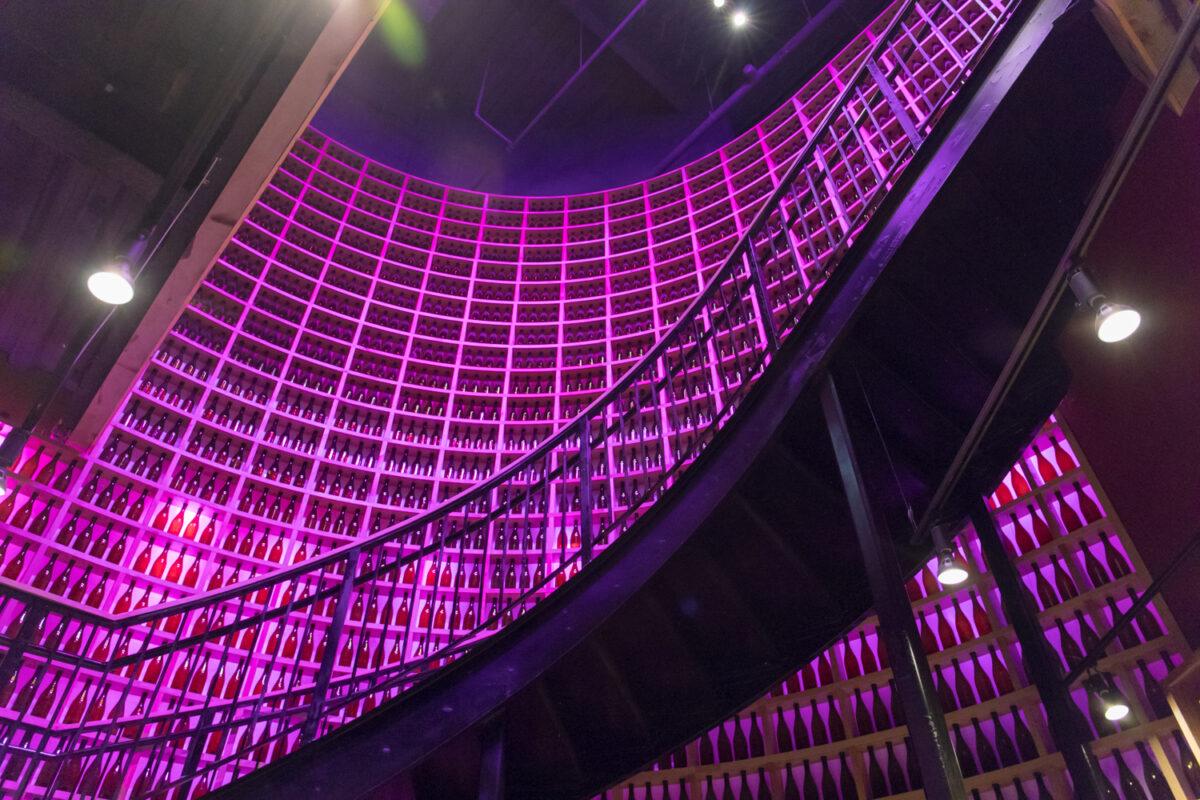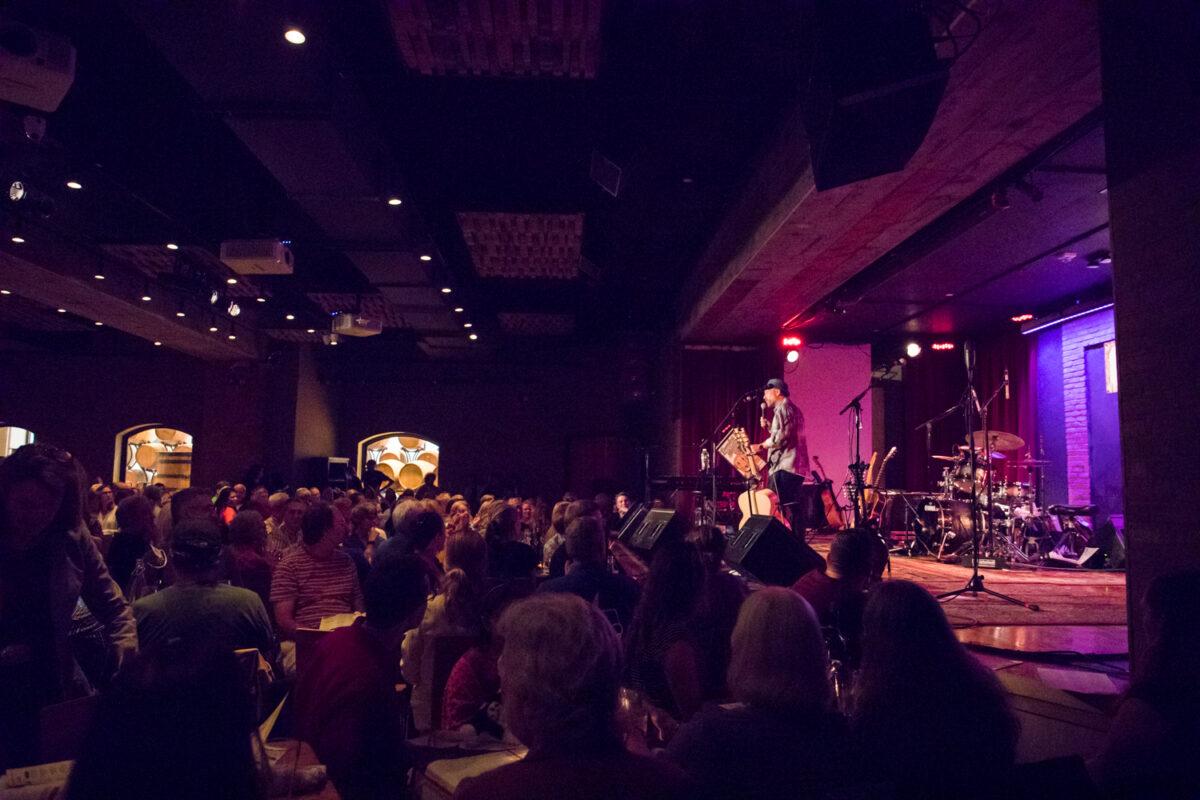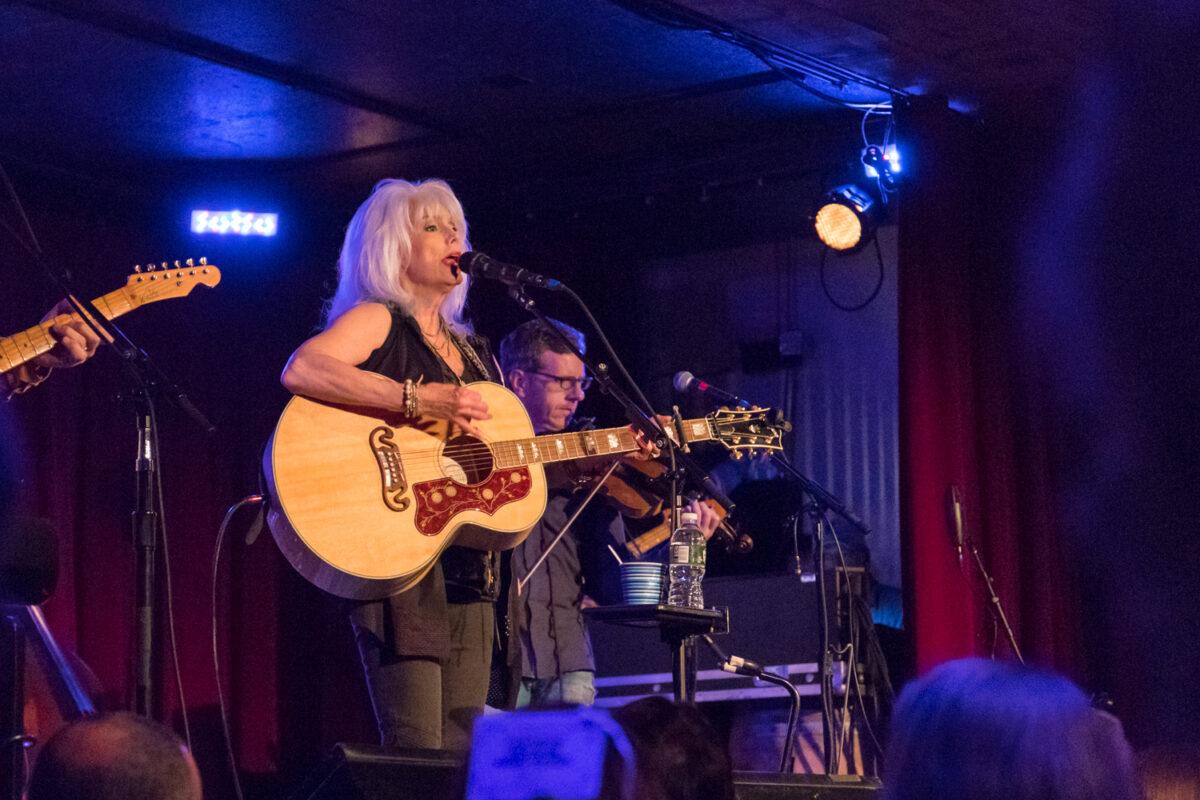Emmylou Harris presides over opening night at City Winery Philly

Emmylou Harris | photo by Jamie Stow for WXPN
Emmylou Harris has always been hard to put a finger on. Though touching on country music’s rich and varied traditions with covers of Bill Monroe and George Jones, Harris is better known for applying her light timbre, aching quiver and melancholy vibe to songs from the nu-country era, be it Gram Parsons (to whom she was famously tied at her start), Rodney Crowell, Steve Earle or that of her own pen. Sure, she could go up-tempo with a country swing number or a sweet, skiffle beat, but for the most part, Harris rides a dusty range, a flat-lined prairie, where cascading crescendos are few and far between. And the skies are all cloudy all day.
That was the sound of the Friday night opening of City Winery Philadelphia, the seventh of Michael Dorf’s adult-oriented, self-grown-grape palaces that popped its cork as part of Fashion District Philadelphia’s fresh emergence. Located on the now-brightly lit corner of 10th & Filbert, across from the Greyhound bus station, City Winery’s 300-seat venue – to say nothing of its additional dining, drinking and hanging rooms – is dedicated to the principle that mature locals will wish to sit, drink a lot of vino and listen to the likes of Harris, Justin Towns Earle, John Sebastian, Josh Rouse, the Mountain Goats, and such in accordance with the success of Dorf’s other Winerys around the country. (Harris commented on the joys of a seated venue such as City Winery after mentioning toward set’s end that she was 72 years old).

Along the sights of countless wine bottles as wall decoration, and barrels as reminder of its industry through its two floor tower, the music room itself is fascinating: low ceilinged, but wide, (very much like World Café Live across town) no one misses an opportunity to see and be seen by the performers on stage, a bricked scrim/wall that resembles that of a comedy club’s tradition. That level of intimacy is re-doubled by the fact that – at least at the Harris show – the intensity and density of the sound was the same no matter where you stood. The consistency of tone could be heard at the bar in the back where I sat or toward the middle at the sound board where I stood as a test. To carry through with City Winery’s dedication to intimacy (again, at least at the Harris show), was how quiet the mix was – you actually HAD TO LISTEN to HEAR, and happily focus on the music in which to complete the experience. It has to be part of their trick – the way a lover’s whisper, rather than a scream, truly draws you in as part of the seduction.
I’m curious to hear how upcoming shows with the edgier likes of Mountain Goats, Bilal and the Flaming Groovies handle the sound, but as far as Harris went, the conversational intimacy of City Winery’s sound was lovely. Disconcerting at first, but exquisite once you got used to hearing the nuance of words and the intricacy of diverse instrumentation.

Within all this, Emmylou Harris’ subtleties did seem an odd choice for an opening night’s headliner (no opener, save for Dorf who said a few words about the paint still drying in the bathrooms, and yes, he’d pay for your dry cleaning). Once you GOT the explosive notion of intimacy and quietude as City Winery’s calling card beyond vino, Harris made perfect sense. Plus, the white haired singer was there to talk up the dog rescue charity that she founded in 2004, Bonaparte’s Retreat, to which the night’s monies were (in part) going.
With guitarist Will Kimbrough and a crack team of intuitive musicians by her side, Harris ran through the length and breadth of her 50 year career (her solo debut, “Gliding Bird” came out in 1969). Starting with a slow, string-filled softie, “Easy From Now On,” Harris & Co. quickly shifted to quick stepping accordion-topped shuffles and honky tonk barroom ballads such as “Blue Kentucky Girl.”
When she got to the piano-and-mandolin laced Buck Owens’ slow song, “Together Again,” Harris’ coolly emotive quaver was in full swing, “swing: being the operative word as her next tune was a prancing, hot jazzy, squeaky chanteuse’s take on Les Paul and Mary Ford’s “How High the Moon.”
As far as pacing went, I’m not entirely certain that placing her elegiac, self-penned “My Name Is Emmett Till,” right after that swinging number made sonic sense. It did, however, strike a major chord in the social cultural currency, which made the tempo come-down worth the price of admission. “I wish this song wasn’t still relevant,” said Harris talking about the true tale of the slaughtered, shredded black child at the hands of white Mississippi bigots.

Singing “I was sent back to my mother / At least what was left of me / She kept my casket open / For the whole wide world to see / The awful desecration / And the evidence of hate / You could not recognize me / The mutilation was so great,” in the middle of set for a group of older Caucasian folk was a great, lyrical gut punch.
From there, Harris and her five-piece crew rolled through the slightly discordant skiffle of Monroe’s holy “Get Up John (the Baptist),” a ringing, Byrds-y take on Crowell’s “Tulsa Queen” and “Leaving Louisiana in the Broad Daylight,” a sentimental look-back at her time as part of The Band’s “The Last Waltz,” with Evangeline,” and a smiling, strummy look at Neil Young’s “Long May Your Run.”
Heading out from the dark, warm wine intimacy of the quiet venue back into the brightly lit corner of a 7-Eleven, a bus station and spanking new mall was a bit jarring at first. Once you screwed your eyes in and re-dilated your pupils, it was fine. You were just happy you had dark, vibey hush of City Winery in the first place.









